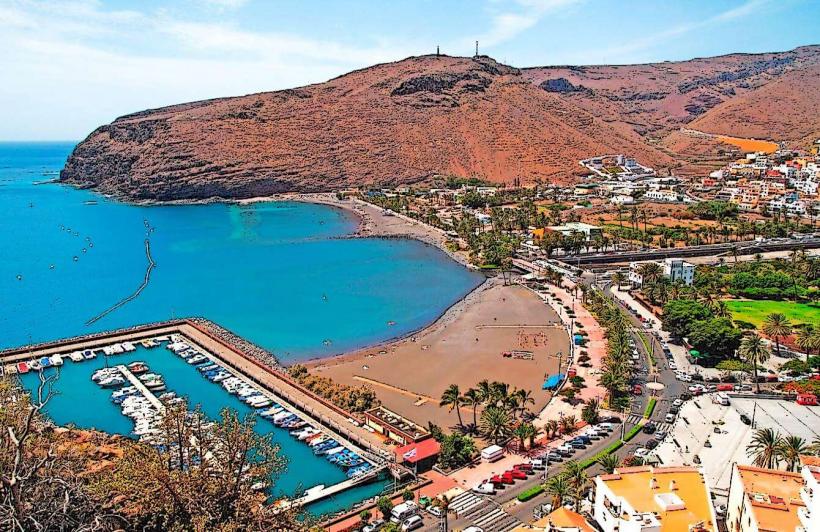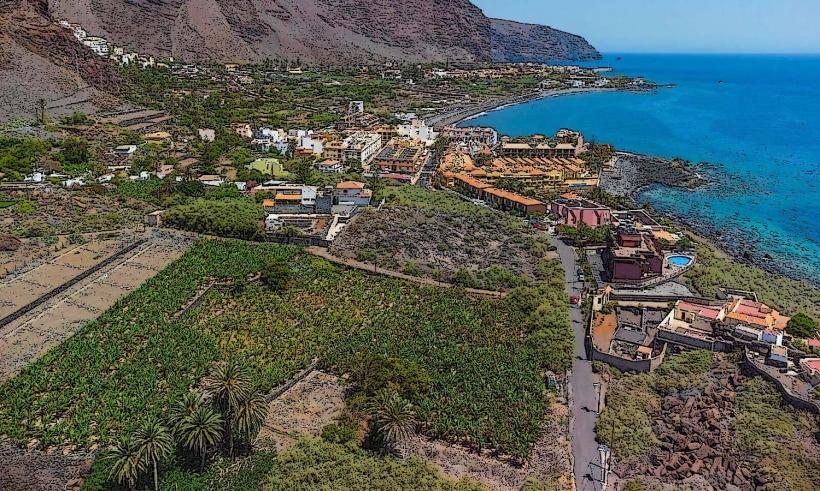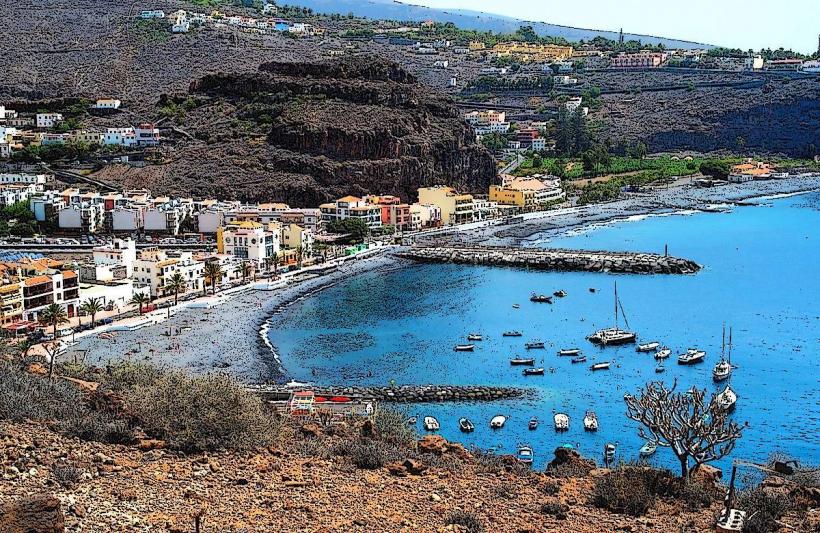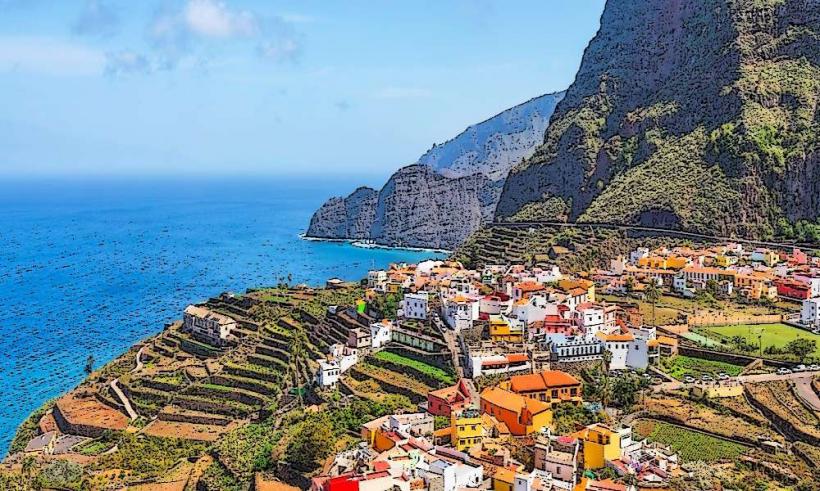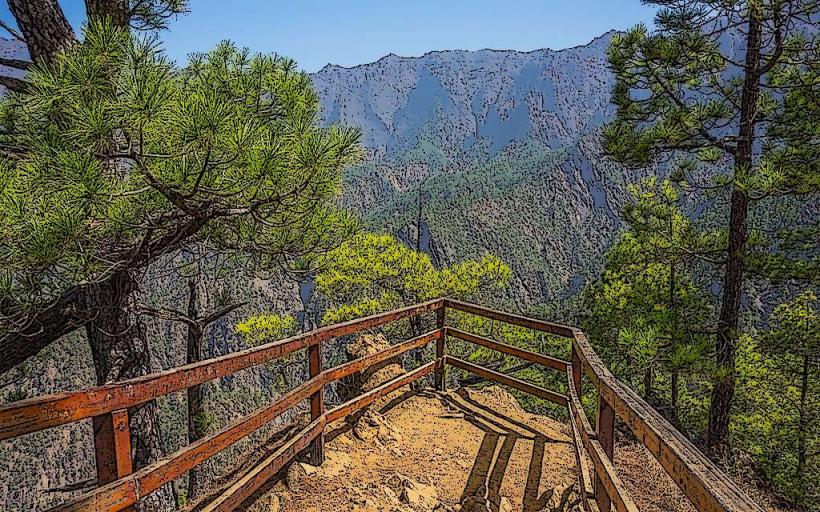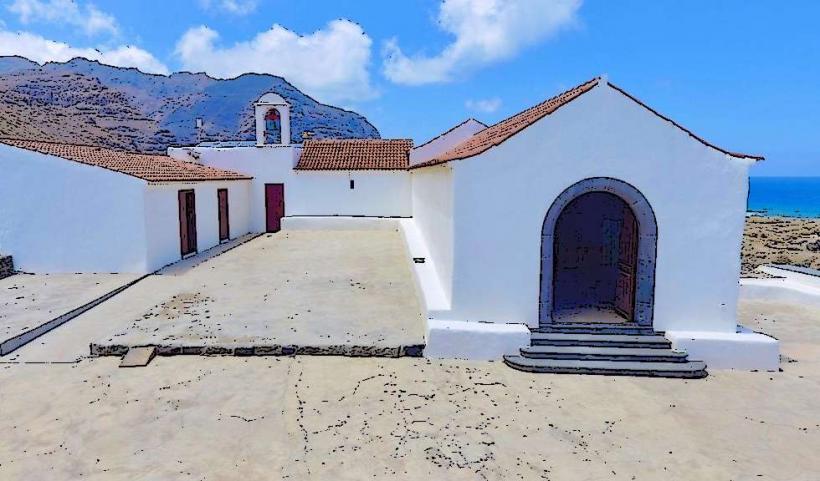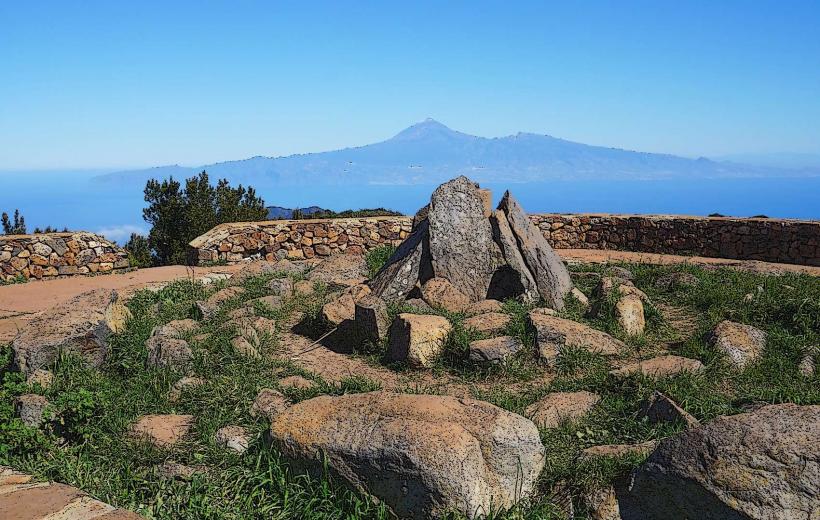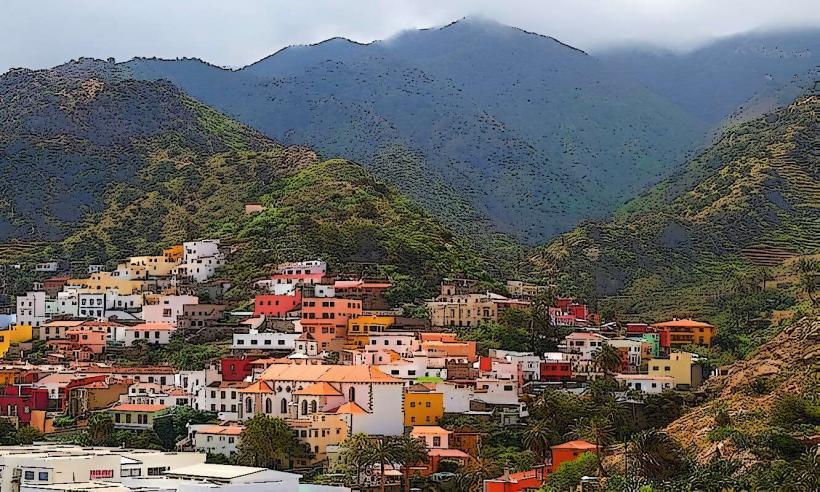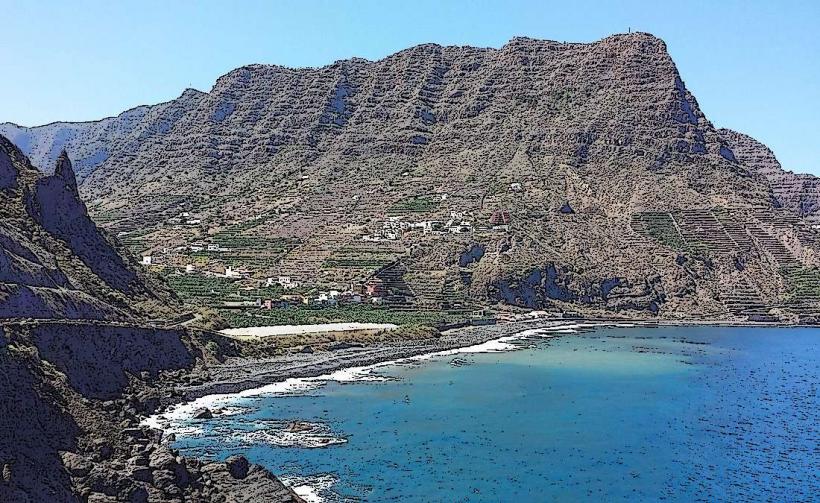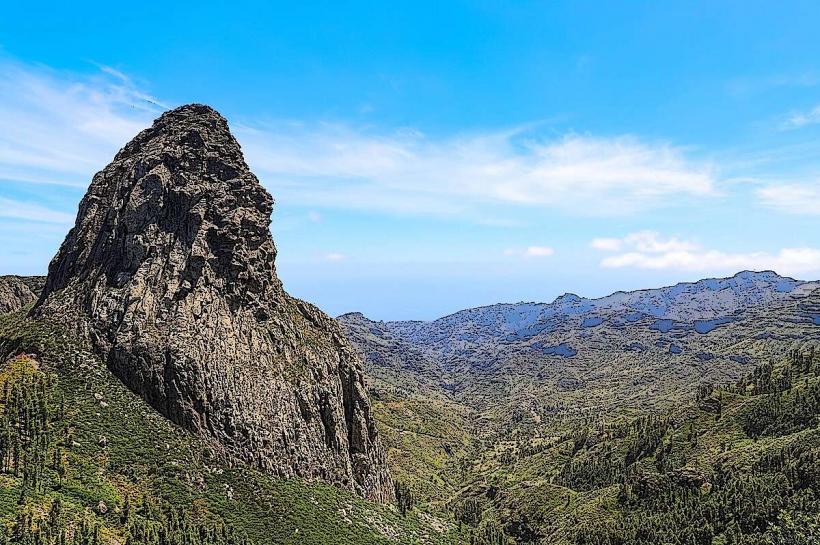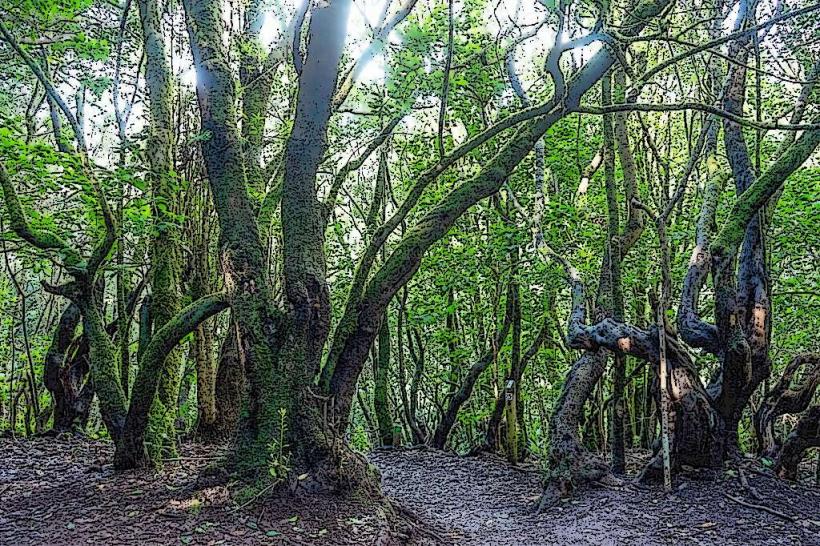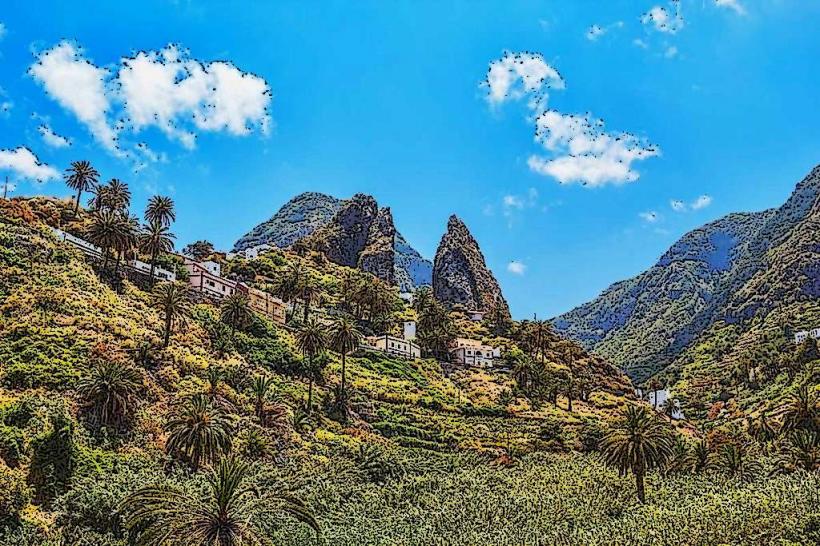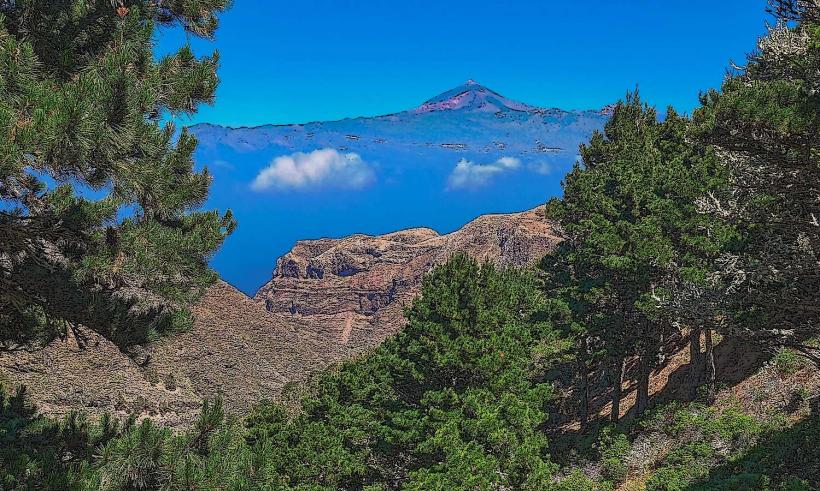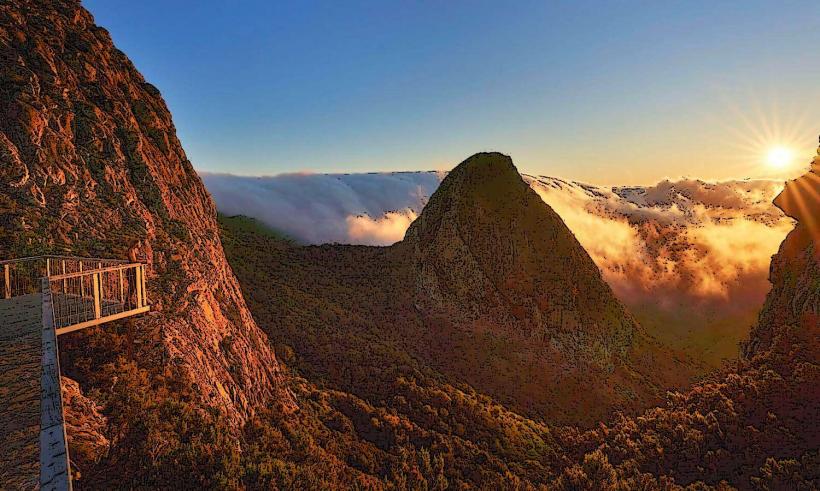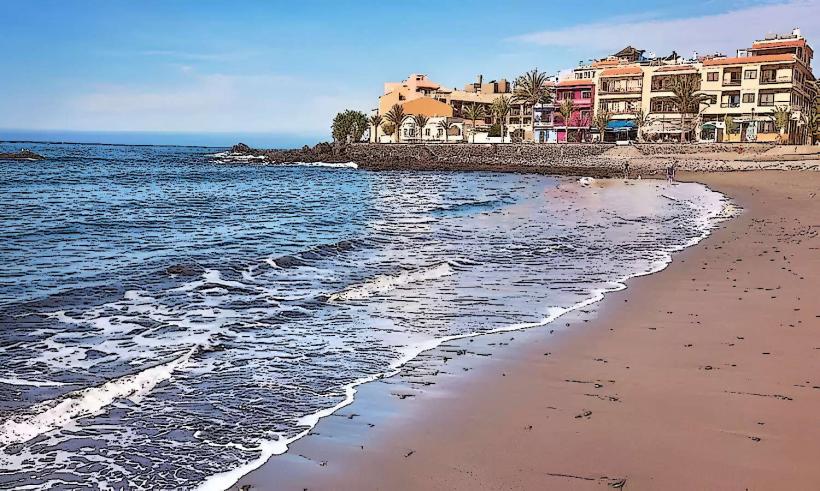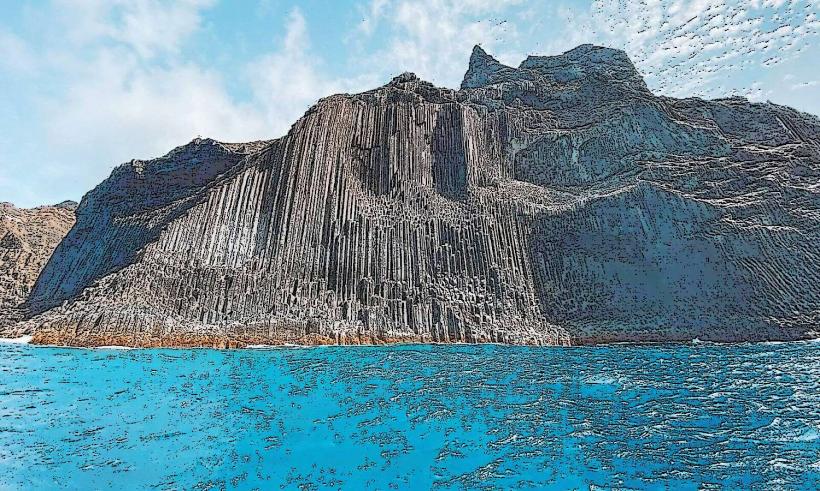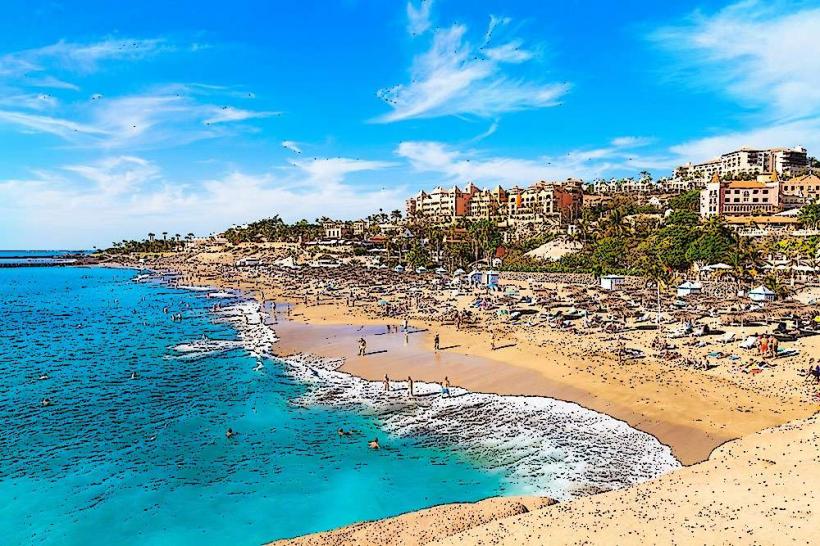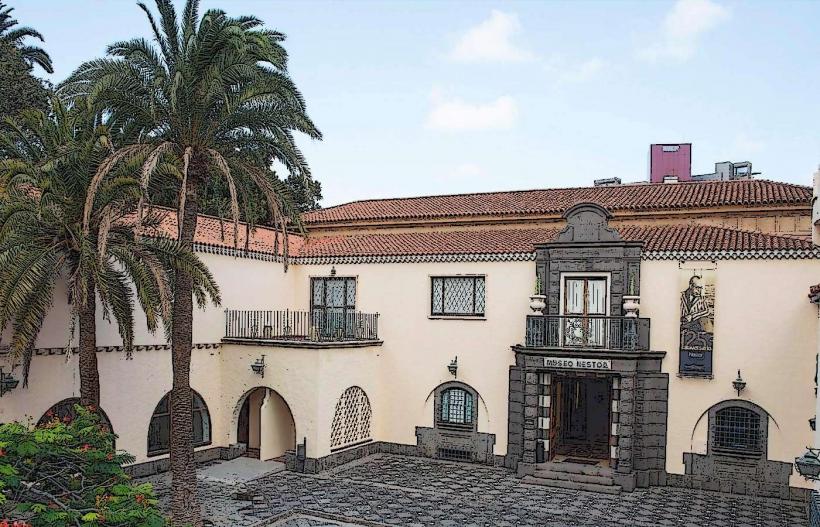Information
Landmark: Garajonay National ParkCity: La Gomera
Country: Canary Islands
Continent: Europe
Garajonay National Park is one of the most famous natural reserves in the Canary Islands, located on La Gomera, the second-smallest island in the archipelago. The park, established in 1981, is recognized as a UNESCO World Heritage Site due to its exceptional biodiversity and unique ecosystems, particularly its ancient laurel forests.
Key Features of Garajonay National Park:
1. Laurel Forests
- Ecosystem: The park is known for its dense, misty, and subtropical laurel forests, which are considered a living fossil of the Tertiary period, dating back millions of years. These forests are home to a variety of endemic plant species, many of which are found only in this area.
- Vegetation: The laurel trees, along with other species like the canary pine and laurel-leaved daphne, create an eerie, magical atmosphere with their thick green canopies and twisting branches.
- Climate: The forests thrive in the humid, cool conditions created by frequent cloud cover and mist, particularly in the higher altitudes of the park.
2. Biodiversity
- Flora: The park harbors over 1,000 plant species, including 50 endemics. The unique ecosystem of Garajonay National Park supports a wide range of plants, including various ferns, mosses, and lichen.
- Fauna: Among the animal species found here are the laurel pigeon, buzzards, canary warblers, and various species of bats, many of which are also endemic to the region. The Canary Island lizard is another notable resident.
- Endemic Species: The isolation of La Gomera has led to the evolution of numerous endemic species, particularly in the plant and invertebrate communities, which have adapted to the unique environmental conditions of the park.
3. Geography
- Landscape: The park covers around 4,000 hectares in the center of La Gomera. Its landscape is shaped by steep ravines, cliffs, and mountain ridges that create dramatic scenery. The highest point in the park is Alto de Garajonay, which rises to 1,487 meters (4,875 feet) above sea level and offers panoramic views of the island and surrounding ocean.
- Ravines and Valleys: Numerous deep ravines, including Barranco de la Madera and Barranco de los Molinos, cut through the park, contributing to its rugged terrain. These ravines create microclimates and further add to the park’s biodiversity.
4. Hiking Trails
- Garajonay is renowned for its network of well-maintained hiking trails, offering a variety of difficulty levels. The PR-GT 10, which is the longest trail, runs across the park and connects key points of interest.
- The trails provide visitors with opportunities to experience the laurel forest, view unique geological formations, and spot wildlife. A popular route is the Los Roques de García, which takes hikers through some of the park’s most iconic rock formations.
5. Cultural Significance
- The name "Garajonay" is derived from a legend involving two lovers, Gara and Jonay, from different parts of the island. Their tragic love story is an important part of local culture and has become intertwined with the natural beauty of the park. The legend symbolizes the isolation of La Gomera and its rich folklore.
6. Conservation Efforts
- The park is protected by both national and international environmental regulations. Conservation efforts focus on preserving the delicate ecosystems of the park and maintaining the habitats of endemic species. Efforts are also made to control invasive species that threaten the native flora and fauna.
7. Visitor Centers and Facilities
- Visitor Centers: Garajonay has several visitor centers located at key points in the park. These centers provide information on the park's history, biodiversity, and available trails. Some notable centers are located in La Fortaleza and El Contadero.
- Guided Tours: To enhance the visitor experience, many guided tours are available, offering insights into the park’s natural history and ecology.
8. How to Reach Garajonay National Park
- Access: The park is easily accessible from the main towns on La Gomera, including San Sebastián de La Gomera and Valle Gran Rey. Visitors can drive up to the park’s main entrances, and public transportation is available for those without a car.
Conclusion
Garajonay National Park is a treasure of natural beauty, cultural importance, and ecological significance. Its ancient laurel forests, diverse wildlife, and dramatic landscapes make it a must-visit destination for nature lovers and those seeking to explore the rich history of the Canary Islands.

